The Talk of the Town

Brief Synopsis
Cast & Crew
George Stevens
Cary Grant
Jean Arthur
Ronald Colman
Edgar Buchanan
Glenda Farrell
Film Details
Technical Specs

Synopsis
When a fire destroys his mill and kills foreman Clyde Bracken, mill owner Andrew Holmes accuses rabble rouser Leopold Dilg of arson. After he is indicted for arson and murder, Dilg, certain that he will be convicted, overpowers a guard one rainy night and escapes from his cell. Pursued by the police, Dilg seeks refuge in an unoccupied cottage owned by schoolteacher Nora Shelley and her mother. Nora is alone at the house, busily preparing it for the arrival of her summer tenant, law school dean Michael Lightcap, who is looking forward to writing his new law treatise in the solitude of the Sweetbrook house. Suffering from an injured ankle, friendless and unjustly accused, Dilg breaks into the house and pleads for Nora's help. When Lightcap arrives, one day ahead of schedule, Nora hides Dilg in the attic, and after showing the professor around the house, she pretends to leave. Instead, Nora sneaks into the attic, and when Lightcap finds her slinking through the hallway, she claims that she has had a fight with her mother and asks to spend the night. The next morning, Nora's mother pounds at the door, looking for her errant daughter. She is followed by reporter Donald Forrester, who is seeking Lightcap's opinion on the Dilg case, and Dilg's attorney, Sam Yates, who has been summoned by Nora. When Yates, a former classmate of Lightcap's, declares that his client has been framed and asks for Lightcap's help, the professor avers that his interest is in the principle of the law and not in local squabbles. After Yates leaves, Nora runs after him and informs him that his client is hiding in her attic. When Yates encourages Nora to allow Dilg to hide there, she realizes that she must also remain in the house and convinces Lightcap to hire her as his cook and secretary until his valet arrives. As Lightcap dictates his sterile theories to Nora, Dilg sneaks into the kitchen, looking for something to eat. When he overhears Lightcap expounding his legal principles, Dilg brazenly steps into the room and criticizes the professor's view of the law as too abstract and idealized. Shocked at the intrusion, Nora introduces Dilg as her gardener, Joseph. Soon after, Senator James Boyd arrives with news that in the fall the President intends to appoint Lightcap to the Supreme Court. Believing that Lightcap's approach to the law is too theoretical, Dilg decides to "thaw him out" by involving the professor in his own case. At breakfast the next morning, Dilg discusses the political corruption that permeates Sweetbrook and then suggests that Nora accompany Lightcap to a local baseball game. At the game, Lightcap meets Judge Grunstadt and is shocked when the judge boasts that he has formed his opinion of Dilg's case without hearing all the evidence. Lightcap begins to admire Dilg's intelligence, but when Dilg challenges him to act against the judge, he refuses. Later, Holmes, the mill owner, campaigns to incite mob violence against the missing Dilg, so Dilg arranges for Nora to escort Lightcap downtown to the factory so that he can witness Holmes's tactics. While passing Dilg's favorite borscht shop, Lightcap, who has grown quite fond of his adversarial gardener, steps in to buy him some soup. When Lightcap makes the unusual request of adding an egg to the broth, the shop's proprietor, Jan Pulaski, realizes that the soup is destined for Dilg, the only person to ask for the added egg, and decides to follow Nora and the professor. At the factory gates, Lightcap meets Holmes, who is in the midst of introducing the crowd to Regina Bush, the grieving sweetheart of arson victim Clyde Bracken. After Nora and the professor leave the factory, Pulaski follows them back to the house and then informs the police. At dinner that night, Lightcap presents the borscht to Dilg, and when he unwraps the newspaper protecting the bottle, he sees a photograph of Dilg on the front page. Asserting that it is his duty to notify the police, Lightcap reaches for the phone, but Dilg knocks him out just as the squad cars, acting on Pulaski's information, arrive. After Dilg escapes, the police interrogate Nora and Lightcap, and although the professor is furious with Nora for involving him in Dilg's predicament, he helps her by lying that he bought the borscht for himself and that he had never seen Dilg before that day. Agitated, Lightcap visits Yates and when the lawyer shows him a fire inspection certificate signed by Bracken, the professor begins to suspect that something is amiss. Deciding to conduct his own investigation, Lightcap shaves off his beard and goes to Regina's beauty parlor for a manicure. Regina fails to recognize the now beardless Lightcap, and when she begins to flirt with him, he invites her to go dancing. Later Regina shows Lightcap a letter she received from Bracken and admits that the foreman is living in Boston. As Lightcap dances with Miss Bush, Nora, who has been searching for Dilg, realizes that he must be hiding at the house and goes to find him. Upon returning home from his date, Lightcap informs Nora that Bracken is in Boston and proposes depositing Dilg at the police station while they drive to Boston to search for Bracken. Lightcap changes his mind, however, when he learns from a police officer that the department intends to turn Dilg over to the crowd as soon as he is captured. Taking the law into his own hands, Lightcap proceeds to Boston, where he and Dilg confront Bracken when he comes to pick up his mail at the post office. After forcing Bracken to confess that he and Holmes set fire to the factory to collect the insurance, they all drive back to Sweetbrook. When Dilg insists on escorting Bracken to city hall to spare Lightcap from scandal, the two begin to argue again, and in the confusion, Bracken knocks out his captors and escapes. After the police arrest Dilg, the senator warns Lightcap to drop the case. Instead, Lightcap picks up a gun, breaks his way into Regina's beauty shop and apprehends Bracken. As the mob swarms into Dilg's hearing at the courthouse, Lightcap appears, fires his gun, produces Bracken and admonishes the crowd to uphold the law. After Dilg is exonerated, Lightcap is appointed to the Supreme Court, and Nora travels to Washington to see his opening session. Before taking his seat on the bench, Lightcap advises Nora to marry Dilg. In the courtroom, Nora spies Dilg in the audience and winks at Lightcap. Dilg thinks that she is in love with the judge and leaves, but Nora follows him. When Dilg urges her to marry Lightcap, she kisses him, and he grabs her wrist and yanks her out of the courthouse.

Director

George Stevens
Cast

Cary Grant

Jean Arthur

Ronald Colman

Edgar Buchanan

Glenda Farrell

Charles Dingle
Emma Dunn

Rex Ingram

Leonid Kinskey
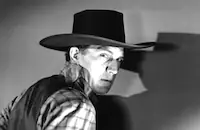
Tom Tyler
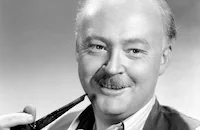
Don Beddoe
George Watts

Clyde Fillmore
Frank M. Thomas
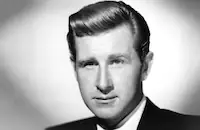
Lloyd Bridges
Max Wagner
Ralph Peters
Pat Mcvey
Eddie Laughton
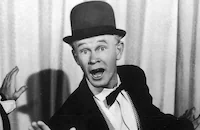
Billy Benedict
Harold "stubby" Kruger
Maynard Holmes
Jack Carr
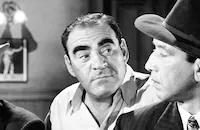
Ralph Dunn
Bill Lally
Edward Hearn
Roberta Smith
Dorothy Babb
Al Ferguson

Lee Phelps
Eddie Coke
Jack Shay
Eddie Bruce
Joe Mcguinn
Lee "lasses" White
William Gould
Ferike Boros
Jack Gardner
Dewey Robinson
Lew Davis
Gino Corrado
Mabel Todd
Dan Seymour
Frank Sully
Lee Prather
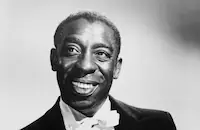
Clarence Muse

Leslie Brooks
Alan Bridge
Joe Cunningham
Jack Lowe

Robert Walker
John Tyrrell
George Hickman
Frank Mills
Blanche Payson
Bud Geary
Georgia Backus
Lelah Tyler
Holger Bendixen
Joe Garcia
Jay Guedalia
Oscar Hendrian
Dave Harper
Dick Jensen
Robert Keats
Herman Marks
Charles Perry
Al Rhein
Al Seymour
Charles St. George
Victor Travers
Ralph Volkie
Crew
Fay Babcock
Lionel Banks
Earl Bellamy
Steve Benton
Bill Black
Paul Borofsky
Bud Brill
Fayte Brown
Sidney Buchman
Morgan Burns
Joe Citron
Eldon Coutts
Lodge Cunningham
Tom Dawson
Norman Deming
Rhoda Donaldson
Gail Ducharme
Dorothy Dunn
Mrs. Ray Feldman
Fred Guiol
Sidney Harmon
Frederick Hollander
Harry Hopkins
Irene
Jack Mannick
Walter Meins
Mal Merrihugh
Otto Meyer
John Miehle
Fred Phillips
Buddy Roosevelt
Sam Rosen
Floyd Shackelford
Irwin Shaw
Kay Smith
Reggie Smith
Paul Stader
Donald Starling
Ralph Stein
Rudolph Sternad
George Stevens
M. W. Stoloff
Ted Tetzlaff
Dale Van Every
Frances Waverly

Photo Collections
Videos
Movie Clip






Hosted Intro
Film Details
Technical Specs

Award Nominations
Best Art Direction
Best Cinematography
Best Editing
Best Picture
Best Score
Best Writing, Screenplay
Articles
The Talk of the Town
Grant had been absent from the screen for almost a year prior to The Talk of the Town. His last picture had been Penny Serenade (1941), which like The Talk of the Town was directed by George Stevens (Grant made three movies under his direction; the first being Gunga Din in 1939). Penny Serenade would bring Grant good luck; while filming The Talk of the Town, the actor learned that he'd been nominated for his first Oscar - a Best Actor nomination for his performance in Penny Serenade. And while he didn't win (the Oscar went to Gary Cooper as Sergeant York), 1942 proved to be memorable to Grant in other ways. Aside from his first Oscar nomination, Cary Grant legally changed his name from Archibald Alexander Leach, became an American citizen and married heiress Barbara Hutton. That's quite a year by anyone's standards.
As for Colman, the 51-year-old British actor hadn't made a movie for Columbia since Lost Horizon in 1937. At the time, the studio was headed by Harry Cohn and Colman, like a lot of stars, was less than fond of Cohn's infamous bad temper and crudeness. "I don't get ulcers, I give 'em!" quipped Cohn in one oft repeated quote. Jean Arthur, Colman's co-star in The Talk of the Town, apparently had no love for Cohn either. But Colman agree to do The Talk of the Town, only after being reassured by Stevens that under no circumstances would he have to deal with Cohn. And it was a smart move. The Talk of the Town sparked new life into Colman's fairly dormant career. Following the success of The Talk of the Town, Colman starred in Random Harvest (1942), which earned him renewed critical acclaim and his third Oscar nomination. While Colman would lose the Best Actor award for Random Harvest to James Cagney's patriotic, flag-waving performance in Yankee Doodle Dandy (1942), the actor's career would remain on a high pitch, with films like Kismet (1944) and Champagne for Caesar (1950). And Colman finally did get his Oscar. The fourth time was the charm in 1947 with his role as the delusional Shakespearean actor in A Double Life.
Neither Grant nor Colman were particularly keen on co-starring with each other in The Talk of the Town since both stars were used to having the leading man billing all to themselves. Stevens wisely played up this conflict on screen, leaving audiences guessing until the last minute whether Jean Arthur's character would chose Grant or Colman. The last minute choice carried over into real life as well. Stevens filmed two endings to The Talk of the Town, one for each romantic possibility, and left the film's outcome up to preview audiences. The screening audiences agreed overwhelmingly that the choice was obvious. See if you agree with their decision.
A couple of interesting side notes to The Talk of the Town: filming was to begin on January 17, 1942, the day Hollywood learned the sad news of Carole Lombard's death in a plane crash. Stevens halted work on the set and sent both cast and crew home. Also, screenwriter Sidney Buchman (who co-wrote the script with Irwin Shaw) was blacklisted in the 1950s. Consequently, Buchman, one of the men who penned Mr. Smith Goes to Washington (1939), left the U.S. and began working in Fox's European division. Buchman would remain in France until his death in 1975.
Producer/Director: George Stevens
Screenplay: Sidney Buchman, Sidney Harmon, Dale Van Every, Irwin Shaw
Production Design: Lionel Banks
Cinematography: Ted Tetzlaff
Costume Design: Irene
Film Editing: Otto Meyer
Original Music: Frederick Hollander Cast: Cary Grant (Leopold Dilg), Jean Arthur (Nora Shelley), Ronald Colman (Michael Lightcap), Edgar Buchanan (Sam Yates), Glenda Farrell (Regina Bush), Charles Dingle (Andrew Holmes), Rex Ingram (Tilney), Tom Tyler (Clyde Bracken).
BW-119m.
by Stephanie Thames

The Talk of the Town
Quotes
Well, it's a form of self-expression. Some people write books. Some people write music. I make speeches on street corners.- Leopold Dilg
What is the law? It's a gun pointed at somebody's head. All depends upon which end of the gun you stand, whether the law is just or not.- Leopold Dilg
With these indoor habits of yours, you've got the complexion of a gravel pit.- Leopold Dilg
You know, Joseph, you're no oil painting yourself.- Michael Lightcap
Stop saying "Leopold" like that, tenderly. It sounds funny. You can't do it with a name like Leopold.- Leopold Dilg
Trivia
Notes
The working titles of this film were Three's a Crowd, Mr. Twilight, Justice Winks an Eye and The Gentleman Misbehaves. Although Columbia publicity materials note that Claire Trevor was to play the second female lead in this picture, and a Hollywood Reporter production chart places her in the cast, she does not appear in the completed film. According to materials contained in the George Stevens papers at the AMPAS Library, Everett Riskin asked Columbia to credit him as the film's producer, claiming that he had worked with writer Dale Van Every to develop the story and screenplay. Studio head Samuel J. Briskin denied his request on the grounds that his contribution was limited to the development of the story and two drafts of the script and that he did not oversee the production, casting or editing. Briskin also credited Stevens with enlarging the part of "Leopold Dilg" so that it would be suitable for a star of Cary Grant's stature.
According to pre-release news items in Hollywood Reporter, the film originally was two hours and thirty minutes long and the studio considered screening two different endings in sneak previews. In one, "Nora" would be paired with "Dilg", and in the other, she would be coupled with "Lightcap." The audience would then decide on her mate. In all the drafts of the screenplay contained in the Stevens papers, however, the film ends with "Dilg" and "Nora" together, suggesting that only one pairing was ever filmed. Several drafts of the script include an additional scene at the end of the picture, however. In that scene, "Dilg" leaves the courthouse followed by "Nora" and proceeds to the town square. When he realizes that the park benches have been removed, he becomes incensed and rallies the crowd to action. This park scene was dropped in the revised final script, dated January 27, 1942, eight days after filming began.
An Hollywood Reporter news item adds that Columbia sound chief John Livadary used a track recorded for Only Angels Have Wings (see AFI Catalog of Feature Films, 1931-40; F3.3283) for the rain scene in this film because he was dissatisfied with the track originally recorded for the scene. Ted Tetzlaff was borrowed from Paramount to photograph this picture. Stevens and Grant had previously worked together on the 1941 Columbia film Penny Serenade. The picture was nominated for Academy Awards for Best Picture, Best Original Story, Best Screenplay, Best Cinematography, Best Art Direction, Best Film Editing and Best Score. Jean Arthur, Cary Grant and Ronald Colman all reprised their roles in a Lux Radio Theatre broadcast on May 17, 1942.















